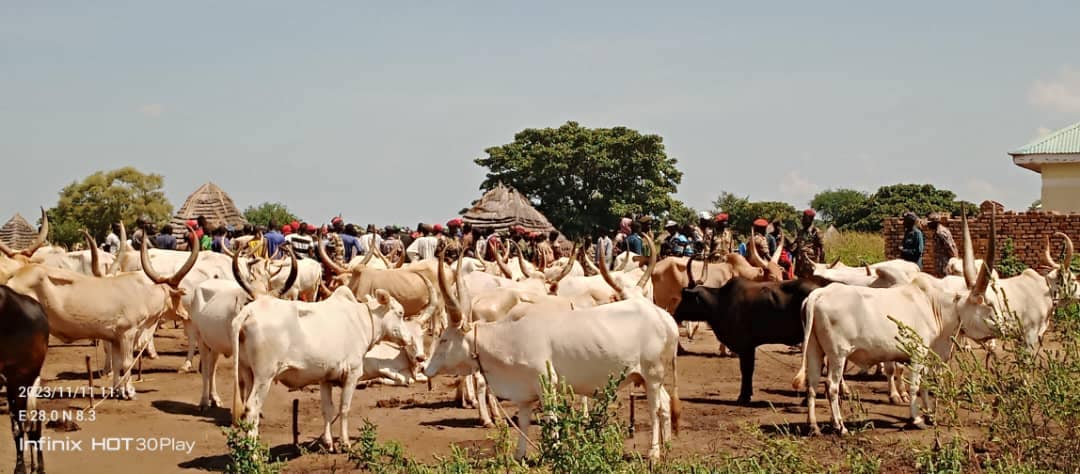Authorities in Warrap State have proposed 11 to 21 heads of cattle as the range for nonconsensual marriage to avoid conflict related to high bride prices.
This is partially part of the recently introduced new customary law called “The Green Book”, which also provided for death penalty by firing a squad of suspects found guilty of committing murder.
About 500 citizens reportedly reviewed the document titled; The Conflict Resolution and Sustainable Development Bill aimed at forging effective governance of the communities.
William Wol who is the state Information Minister said the document comprising 15 pages, obtained by Eye Radio, it recommended 21 cows as the maximum dowry for non-consensus marriage as opposed to 31 caws previously in the Wan Alel customary-law.
“The recent proposal made by the council of ministers says 21 head of cattle as the maximum and 11 heads of cattle as the minimum bride price or a dowry compared to wan Alel customary law which gave 31 heads of cattle,” he said.
The tenet was endorsed by the state Council of Ministers of Warrap state, pending the approval of the state legislative assembly.
” If they (MPs) can amend or rectify and pass into law, then anybody who can have now 21 or 11 cattle to get a wife in accordant to nonconsensual marriage.
‘If is a consensus marriage, you can negotiate up to fifty or a hundred depending on the parties.”
Other recommendations of the Green Book include the dispatch of chief judges and the establishment of special courts in all counties of Warrap state to speed up the trial of criminal cases involving communal and territorial land disputes.

